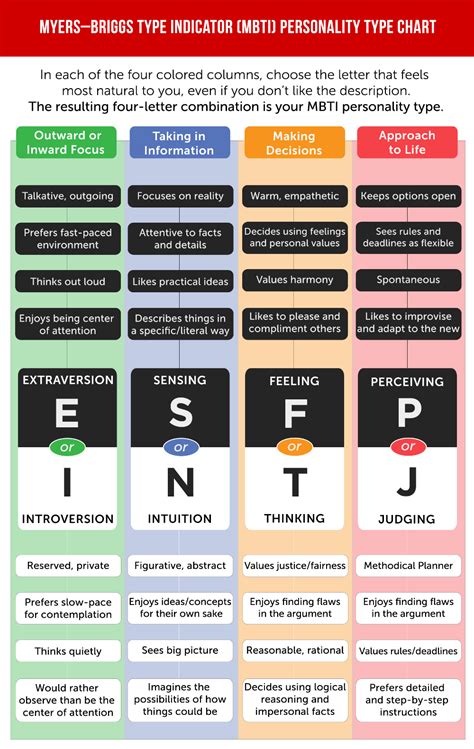Introduction

Our personality is a complex and multifaceted aspect of ourselves that influences our thoughts, feelings, behaviors, and interactions with others. It is shaped by a combination of genetic, environmental, and cultural factors, and it plays a crucial role in determining our life experiences. Understanding our own personality chemistry can help us to:
- make better decisions
- build stronger relationships
- achieve our goals
- live more fulfilling and authentic lives
The Big Five Personality Traits
Psychologists have identified five broad personality traits that are commonly used to describe individuals:
- Openness to Experience: The extent to which we are open to new experiences, ideas, and values. Open individuals tend to be creative, curious, and intellectually adventurous.
- Conscientiousness: The extent to which we are organized, responsible, and goal-oriented. Conscientious individuals tend to be reliable, efficient, and achievement-oriented.
- Extraversion: The extent to which we are outgoing, sociable, and assertive. Extraverted individuals tend to be energetic, expressive, and talkative.
- Agreeableness: The extent to which we are cooperative, compassionate, and trusting. Agreeable individuals tend to be friendly, helpful, and supportive.
- Neuroticism: The extent to which we experience negative emotions, such as anxiety, anger, and depression. Neurotic individuals tend to be emotionally unstable, self-conscious, and vulnerable to stress.
Other Theories of Personality
In addition to the Big Five personality traits, there are many other theories of personality that have been proposed by psychologists. Some of the most notable include:
- Psychoanalytic theory: Focuses on the unconscious mind and the role of early childhood experiences in shaping personality.
- Behaviorism: Focuses on the role of environmental reinforcement and punishment in shaping behavior.
- Social cognitive theory: Focuses on the role of learning, cognition, and social interactions in shaping personality.
Personality Tests
There are a variety of personality tests available that can help you to better understand your own personality. Some of the most common include:
- Myers-Briggs Type Indicator (MBTI): Measures your preferences for different ways of thinking, feeling, and behaving.
- NEO Personality Inventory (NEO-PI): Measures your scores on the Big Five personality traits.
- MMPI-2 (Minnesota Multiphasic Personality Inventory): A more comprehensive personality test that is often used in clinical settings.
Personality and Success
Research has shown that our personality can play a significant role in our success in both our personal and professional lives. For example, conscientious individuals tend to be more successful in their careers, while extraverted individuals tend to be more successful in sales and marketing.
Personality and Health
Our personality can also affect our health. For example, neurotic individuals are more likely to experience mental health problems, such as anxiety and depression, while conscientious individuals are more likely to live longer and healthier lives.
Changing Your Personality
While our personality is relatively stable over time, it is possible to change our personality to some extent. This can be done through therapy, self-help books, and other resources. However, it is important to note that changing your personality is a gradual process that can take time and effort.
Common Mistakes to Avoid
When trying to understand your own personality chemistry, it is important to avoid making the following common mistakes:
- Oversimplifying your personality: Your personality is a complex and multifaceted phenomenon, and it cannot be reduced to a single trait or label.
- Ignoring the context of your behavior: Your personality is influenced by your environment, and your behavior may vary depending on the situation you are in.
- Comparing yourself to others: Everyone is different, and there is no such thing as a “normal” personality. Comparing yourself to others will only make you feel inadequate.
Conclusion
Understanding our own personality chemistry is an important step towards self-awareness and personal growth. By understanding our strengths and weaknesses, we can make better decisions, build stronger relationships, achieve our goals, and live more fulfilling and authentic lives.
Table 1: The Big Five Personality Traits
| Trait | Description |
|---|---|
| Openness to Experience | The extent to which we are open to new experiences, ideas, and values. |
| Conscientiousness | The extent to which we are organized, responsible, and goal-oriented. |
| Extraversion | The extent to which we are outgoing, sociable, and assertive. |
| Agreeableness | The extent to which we are cooperative, compassionate, and trusting. |
| Neuroticism | The extent to which we experience negative emotions, such as anxiety, anger, and depression. |
Table 2: Other Theories of Personality
| Theory | Focus |
|---|---|
| Psychoanalytic theory | The unconscious mind and the role of early childhood experiences |
| Behaviorism | The role of environmental reinforcement and punishment |
| Social cognitive theory | The role of learning, cognition, and social interactions |
Table 3: Personality Tests
| Test | Description |
|---|---|
| Myers-Briggs Type Indicator (MBTI) | Measures your preferences for different ways of thinking, feeling, and behaving. |
| NEO Personality Inventory (NEO-PI) | Measures your scores on the Big Five personality traits. |
| MMPI-2 (Minnesota Multiphasic Personality Inventory) | A more comprehensive personality test that is often used in clinical settings. |
Table 4: Common Mistakes to Avoid
| Mistake | Description |
|---|---|
| Oversimplifying your personality | Your personality is a complex and multifaceted phenomenon, and it cannot be reduced to a single trait or label. |
| Ignoring the context of your behavior | Your personality is influenced by your environment, and your behavior may vary depending on the situation you are in. |
| Comparing yourself to others | Everyone is different, and there is no such thing as a “normal” personality. Comparing yourself to others will only make you feel inadequate. |
